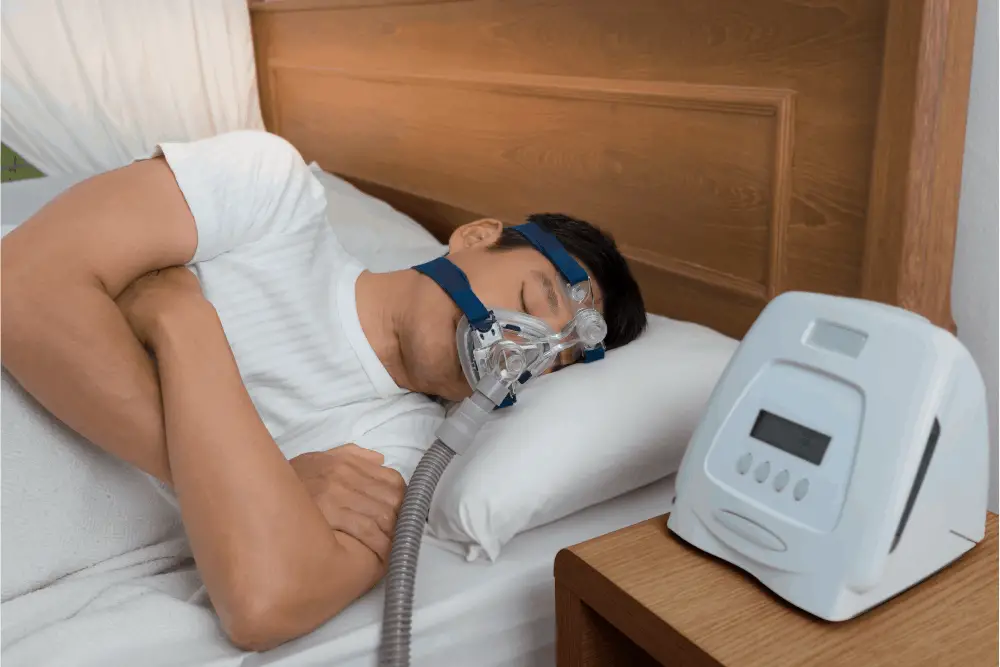It can feel like a big deal to be diagnosed with sleep apnea.
This is a common condition characterized by the disruption of breathing during sleep, which often leads to pauses followed by gasping for air or choking.
CPAP is the most common and effective treatment option for sleep apnea, particularly if your condition is moderate to severe.
However, you might find yourself wondering if you’ll always have to wear a CPAP mask and if you’ll always suffer from sleep apnea.
Can CPAP cure sleep apnea?
A CPAP device provides constant airflow which prevents the airway from collapsing while you sleep. CPAP can fully resolve sleep apnea while in use, though it’s not a cure for the condition.
The reason for this is that the CPAP machine can only cure your sleep apnea while you use it - it will not result in structural changes that will resolve your issue.
Some people note that if they take a break from their CPAP, or stop using it, they experience residual benefits for a few days. The reason for this is that the CPAP temporarily decreases swelling along the airway, however, once the sleep apnea or snoring resumes, the swelling will flare up again, as well as the other sleep apnea symptoms.

Will I have to use my CPAP forever?
As we said, CPAP is a highly effective method for treating sleep apnea, however, that doesn’t mean you’ll always have to use it.
Some people find that their sleep apnea is flared up by allergies, and in this case, treatment may help, while women who experience sleep apnea during pregnancy will likely find that the condition resolves itself afterward.
The best chance you have at curing your sleep apnea is to identify the contributing factors, and causes, of the condition. For example, in some cases, weight loss can significantly alleviate the condition. This is something you can discuss with your doctor or sleep specialist.
Many people don’t bother treating their sleep apnea, as the CPAP device seems more hassle than it’s worth. However, this isn’t true. Using the device for a few minutes during the day, and using it at nighttime can really help.
If it provides you with a better quality of sleep, which will enable you to be more alert and productive in the day, surely it’s worth it. It’ll also decrease the risk of long-term health issues associated with sleep apnea.
What causes sleep apnea?
People experience sleep apnea for different reasons, for example, it can come down to your anatomy, and the structures of your nose, throat, jaw, and tongue. It’s possible that you were born with these predispositions, meaning they’re likely to persist throughout your life.
Another cause can be a broken nose which has led to a deviated septum. The turbinates - the tissues in the nose - can also swell in response to allergies, or if you have nasal congestion or a cold.
There are also causes such as mouth breathing, the position of your teeth, and other factors which impact your airway during sleep.
For others, the causes of their sleep apnea may be transient and reversible.
For example, some people only experience sleep apnea or snoring in certain scenarios, such as if they’ve drunk alcohol or sleep on their back, while others may find that these factors further aggravate their sleep apnea.
REM (rapid eye movement) sleep, which usually occurs towards morning, may also trigger sleep apnea.
Even weight gain makes sleep apnea worse, as the accumulation of fat tissues at the base of the tongue and along the airway can cause it to narrow, restricting your breathing.
Aging can also be a contributing factor, as it leads to loss of muscle tone and more collapsibility of the airway. Women going through menopause are also at higher risk of sleep apnea due to a loss of hormones, including progesterone.
As expected, some of these factors are reversible and can be addressed in time or through lifestyle changes, while those relating to your anatomy and physiology cannot.
Alternatives
Nobody wants to have to use their CPAP for life, and with the advancement of technology, these devices are becoming increasingly quieter, smaller, and less intrusive.
There are also alternatives available for treating sleep apnea, such as oral appliances or surgical procedures, and as time goes on more treatments will be developed and will become increasingly available.
You can review the data collected by the CPAP device to get an idea of how well it is working, and you may wish for a sleep study to be carried out to see whether your sleep apnea has improved or been resolved.
CPAP is the most effective treatment available at the moment, and many people experience benefits from using it. However, if you have issues or reservations about it, you should discuss these with your health professional or board-certified sleep specialist.

Damon Wiseley is a Registered Respiratory Therapist and Certified Pulmonary Function Technologist.
